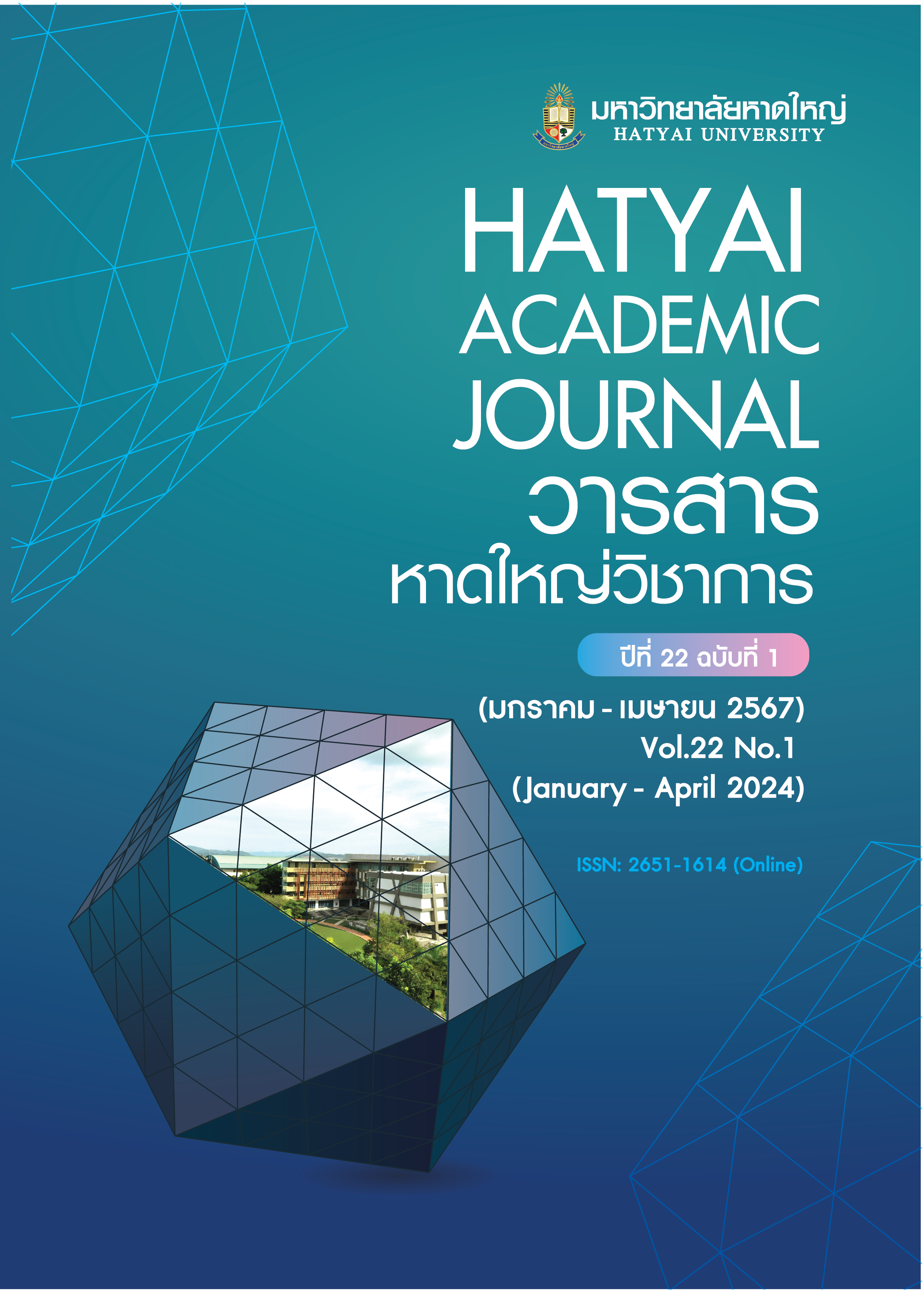A Study of the Needs and Guidelines to Enhance the Research Competencies of Academic Support Personnel at Distance Education Universities in Thailand
Main Article Content
Abstract
Most academic support personnel at distance education universities lack research opportunities and competencies. Therefore, this research aimed to 1) study the need to enhance the research competencies of personnel, and 2) offer guidelines for enhancing their research competencies. This research used mixed methods that combined quantitative research with a sampling of 311 academic support personnel and qualitative research with six personnel and two experts who were the eight key informants.
The results showed that: 1) The need to enhance research competencies was high (NI = 56.33). The first need for competencies was research publications (NI = 59.56), and the first need for positions was for general positions (NI = 68.04).
2) Guidelines for developing research competencies that are suitable for academic support personnel were the “Research, Measurement, and Evaluation Clinic.” The service processes of the clinic were as follows: access to services, assessment, screening,sorting, consulting services, appointments and follow-up, and constructing the personnel’s profile at distance education universities. The results of this research can apply the guidelines to develop capabilities for research proposal writing, report writing, publication, and other competencies of academic support personnel at distance education universities.
Article Details

This work is licensed under a Creative Commons Attribution-NonCommercial-NoDerivatives 4.0 International License.
All published articles are evaluated by three qualified peer reviewers from various institutions through a double-blind process, where reviewers do not know the authors’ identities and authors do not know the reviewers’ identities. The content and articles in the Hatyai Academic Journal reflect the authors’ views only and are neither the opinions of the editorial board nor the responsibility of Hatyai University. The Editorial Board of the Hatyai Academic Journal allows articles to be reproduced for academic purposes, on the condition that the original source is clearly cited.
References
Alpay, E., & Walsh, E. (2008). A skills perception inventory for evaluating postgraduate transferable skills development. Assessment & Evaluation in Higher Education, 33(6), 581-598. doi: 10.1080/02602930701772804
Bray, R., & Boon, S. (2011). Towards a framework for research career development: An evaluation of the UK’s vitae researcher development framework. International Journal for Researcher Development, 2(2), 99-116.
Buatchum, N., & Poomkaew, Y. (2012). Approach for development of the researchers potential at Chandrakasem Rajabhat University. Chandrakasem Rajabhat University Journal, 18(34), 33-41. [in Thai]
Creswell, J. W. (2003). Research design: Qualitative, quantitative, and mixed methods approaches (2nd ed.). Thousand Oaks, CA: Sage.
Evans, L. (2012). Leadership for researcher development: What research leaders need to know and understand. Educational Management Administration & Leadership, 40(4), 423-435.
Gupta, K. K., Attri, J. P., Singh, A., Kaur, H., & Kaur, G. (2016). Basic concepts for sample size Calculation: Critical step for any clinical trials. Saudi Journal of Anaesthesia, 10(3), 328-331.
John, J., & Creighton, J. (2011). Researcher development: The impact of undergraduate research opportunity programmes on students in the UK. Studies in Higher Education, 36(7), 781-797.
Kanjanawasee, S. (1989). Alternative strategies for policy analysis: An assessment of school effects on students’ cognitive and affective mathematics outcomes in lower secondary schools in Thailand (Unpublished doctoral dissertation). University of California, Oakland, CA.
Karndee, P. (2016). Extension guidelines for distance education research. Electronic Journal of Open and Distance Innovative Learning, 6(1), 30-44. [in Thai]
Kaslow, N. J., Grus, C. L., Campbell, L. F., Fouad, N. A., Hatcher, R. L., & Rodolfa, E. R. (2009). Competency assessment toolkit for professional psychology. Training and Education in Professional Psychology, 3(4), 27-45.
OECD. (2013). Transferable skills training for researchers-supporting career, OECD Publishing. Retrieved from http://www.abc.org.br/wp-content/uploads/2013/12/pdf_doc-4448.pdf
Phusee-orn, S. (2018). The development of research clinic system, faculty of education Mahasarakham University. Social Sciences Research and Academic Journal, 13(38), 59-74. [in Thai]
Sripoon, N., & Kaewkohsaba, S. (2012). Factors affecting lecturers’ conducting research of Hatyai University. Retrieved from https://www.stou.ac.th/offices/ore/info/cae/uploads/pdf/637301255755476844.pdf [in Thai]
Srisaad, B. (2011). Introduction to research (9th ed). Bangkok: Suweerivasarn. [in Thai]
Streiner, D. L. (2003). Starting at the beginning: An introduction to coefficient alpha and internal consistency. Journal of Personality Assessment, 80(1), 99-103.
Sukhothaitammatirat Open University. (2022). Sukhothaitammatirat Open University’s personnel database 2022. Nonthaburi: Human Resources Division. [in Thai]
Sumepha, N., & Apiraksattaya, P. (2017). Effective factors that affect the enhancement of the supporting staff’s performance to conduct the Job-related research in faculty of medical science, Mahasarakham University. Sarakham Journal, 8(2), 48-62. [in Thai]
Swank, J. M., & Lambie, G. W. (2016). Development of the research competencies scale. Measurement and Evaluation in Counseling and Development, 49(2), 91-108.
Thongsong, B., Yamtim, V., & Jai-Aree A. (2020). Research competency enhancement process based on knowledge management procedures for developing routine to research of support staff at Thaksin University. Kasetsart Journal of Social Sciences, 41(2), 441-448. [in Thai]
Weston, T. J., & Laursen, S. L. (2015). The Undergraduate Research Student Self-Assessment (URSSA): Validation for use in program evaluation. CBE-Life Sciences Education, 14(3), 1-10.
Whangmahaporn, P. (2011). Factors contributing to research capability enhancement of Sripatum faculty members. Bangkok: Sripatum University. [in Thai]


